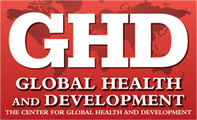WHEN works with government partners, the private sector, donors and DFIs to design and deploy sustainable business models for healthcare delivery in Latin America, Southern Africa, and Southeast Asia. The system will be supported with a strengthened insurance model that can support gold-standard care while mitigating catastrophic health expenditure for patients..
To address the gaps in funding, WHEN is in the process of designing an investable model, based on partnerships with national telecom companies, private banks, development finance agencies, philanthropists, micro-insurance platforms, local governments, and infrastructure partners to create a comprehensive insurance model that both increases access to care while ensuring model sustainability.
- Identify current funding gaps for women’s health care with Ministries of Health and Ministries of Finance: to develop a financial model that is tailored to population needs.
- Negotiate contracts with government and private sector partner to develop a sustainable insurance model, and improve affordability at the last mile.
- Catalyze investment into health systems from external partners who can provide technical assistance and/or equity into health and financial systems.
- Strengthen human resources through capacity building and the integration of technical profiles in public health system management.
- Develop a strategic financing plan in partnership with Ministries of Health, Ministry of Finance, and WHEN financial partners to ensure that healthcare is accessible and affordable to the last mile.
- Working with partners to expand access to care and by scaling gold-standard clinics in underserved areas of target countries.
- Work with private sector companies, innovators, and donors to equip health centers with gold-standard equipment and digital technology.
- Ensure last mile distribution success to ensure all the populations, wherever they are, have access to and can afford the medicines and products they need.
- Improve monitoring and evaluation of health system performance:
Formulate a monitoring framework in which all stakeholders at national, regional and district level will have common performance objectives and actively contribute to maintaining health system performance.

